Ancient Greek History: Imposing Facts and Influence
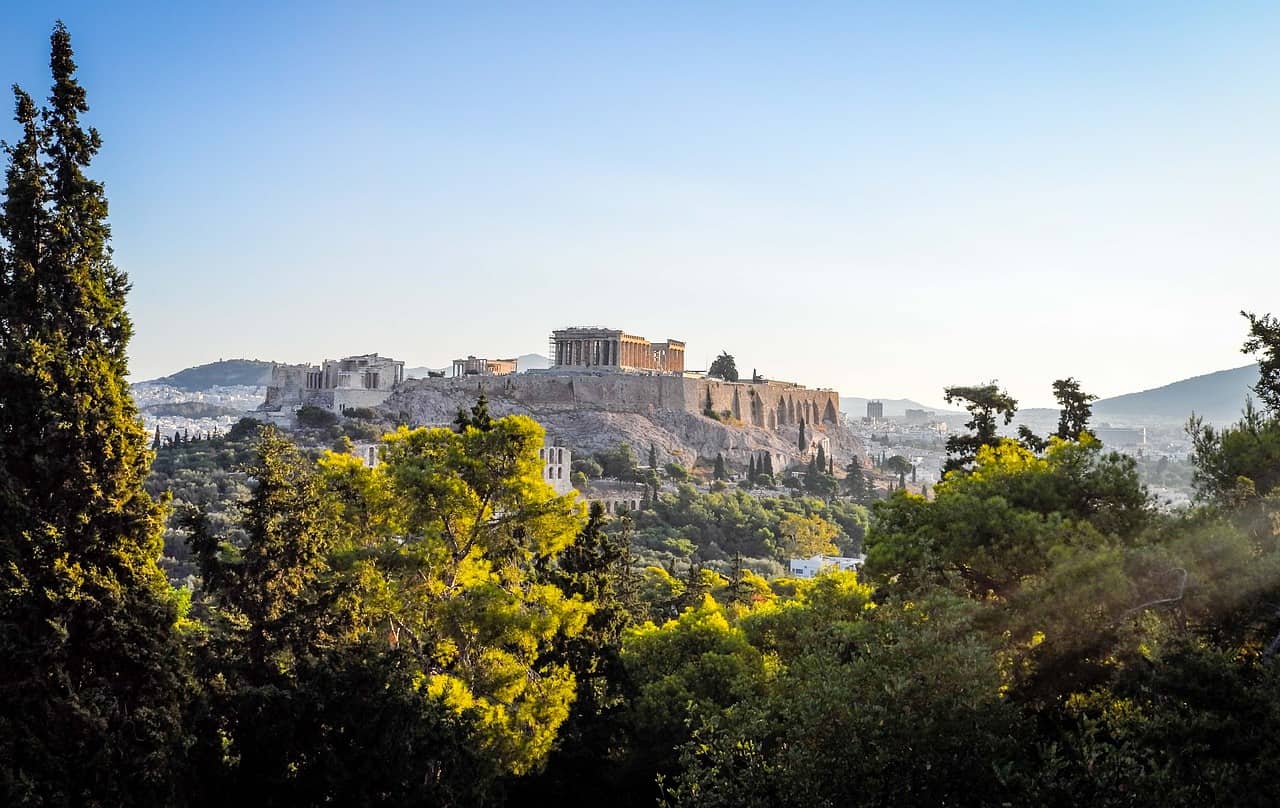
Updated On: April 23, 2024 by Panseih Gharib
Ancient Greek civilization is one of the oldest civilizations known in human history. Its greatness is not restricted to only ancient ruins and heroic stories, but the greatness of their existence extends to culture, science, philosophy, art, and architecture. Their civilization is alive to date, as they have their imprints in many factions in our daily lives. We can easily trace concepts, ideas, scientific discoveries, and creations in all fields back to ancient Greek times.
Moreover, Greek history was not only confined to Greece premises, but they also managed to extend their influence to ancient Europe, Asia and North Africa. For instance, there is a great connection between ancient Greek history and ancient Egyptian Pharaonic history. They shared colonies, ideologies, marriages, and empires. There are even similarities between the Ancient Greek and the Ancient Egyptian Gods and Goddesses.
Below, we will explore some main historical remarks created by the Ancient Greek civilization and their influence on modern times even to date. And if you wish to experience a glimpse of their greatness, we will explore some of their imprints that are still alive and answer the question of where and how you can observe them yourself.
Ancient Greek History Facts
1- Ancient Greece Politics and Government
Ancient Greece was not one kingdom. It was divided into small cities-states or occupation that was called Polis. A polis was established during the period of archaic ancient Greek history. Historians claim that the number o poleis (plural of polis) reached 1000 poleis. Each polis had a separate governor and way of life. They were in continual unrest and war with each other. The most famous polies include Athens and Sparta.
2- Ancient Greek Famous Historical Leaders
The reputation of the ancient Greek wars and their ancient world colonization could not be done without the dedication of their unique leaders. Indeed, there are names that went down in history with exceptional war intelligence and governance. Their leaders’ strategies create guidelines that are taught to date to be learnt from and inspire on many levels.
Alexander the Great
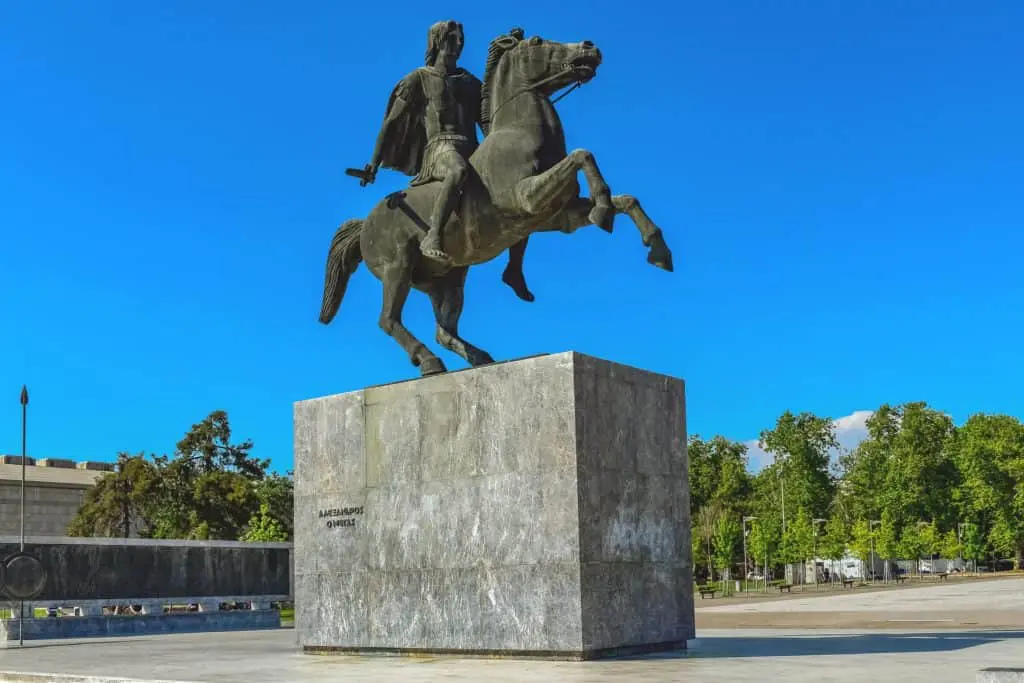
It is very difficult to find someone who would hear the name Alexander the Great, and it does not ring a bell. You must have read or heard or watched a film that brought up this exceptional name. A unique, one of his kind war hero and leader. Alexander the Great is one of the best legends known to history. He managed to expand the Greek culture and identity all over the ancient world through his invasions and expeditions.
Reaching North Africa, we can find traces of his invasion in the Ancient Egyptian culture that strongly collides with the Greek culture. There are many similarities, for instance between the Egyptian Gods and the Greek Gods. Even to date, people can visit the Greek monuments and ruins in Egypt.
Alexander III of Macedon succeeded his father Philip II on the throne in 336 BC at the age of 20. He was tutored by Aristotle till the age of 16. Once acquiring the throne, he focused on his military expeditions. By the age of 30, Alexander created one of the largest empires in history that stretched from Greece to Northwest India. He founded more than twenty cities that were named after him. One of the most famous cities is Alexandria in Egypt.
His widespread settlements all over the ancient world resulted in the spread of the Greek culture and the dominance of the Hellenistic Civilization. He became a classical legend who was featured in historical and mythical traditions of Greek and non-Greek cultures. His military tactics and success remain an interest and subject of study to many military leaders and academies to date.
The Egyptian Alexandria
One cannot mention Alexander the Great without taking a while to talk about one of the most prominent cities he founded, Alexandria in Egypt. Alexandria is considered one of the most famous cosmopolitan cities in the world. It is home to citizens from various origins, religious beliefs, and ethnicity.
On visiting Alexandria, you can find traces of its cosmopolitan nature all over the city. Foad street, the Greek community buildings, the Latin district, the Christian Empire footprints, and the Islamic culture, all stand side by side in one city to date. It is a place that attracts cultures, preserves them, and absorbs their authentic nature.
The story of Alexandria began in April 331 BC, after Alexander the Great chose the city’s location with the intention of creating a large Greek city on the Egyptian coastline. He envisioned the building of a causeway to the nearby island of Pharos that would create two massive natural harbours.
Alexandria was to be the link between Greece and the Nile valley. However, shortly after its foundation, Alexander the Great left Egypt and never revisited it during his life. Nevertheless, the work in Alexandria and its ongoing history from the day of its foundation and forward was extraordinary.
One of the famous ancient Greek creations that have been built in Alexandria and survived to date, is the Library of Alexandria. The Great Library of Alexandria was part of the Mouseion, which used to be a larger research institution dedicated to the Muses; the nine goddesses of the arts.
The idea of a universal library in Alexandria is said to have been proposed by Demetrius of Phalerum, who was an exiled Athenian statesman living in Alexandria, to Ptolemy I Soter. Ptolemy I has established the plans for the Library, but historians claim that the Library itself was not built until the reign of his son Ptolemy II Philadelphus. After its establishment, the Library quickly received many papyrus scrolls, estimates ranging from 40,000 to 400,000, owing largely to the Ptolemaic kings’ aggressive and well-funded policies for procuring texts.
As a result of the Library’s foundation, Alexandria came to be regarded as the capital of knowledge and learning, in the ancient world. The Library was home to a number of influential scholars who worked there during the third and second centuries BC. Some famous names associated with the ancient Library of Alexandria include Zenodotus of Ephesus, Callimachus, Apollonius of Rhodes, Eratosthenes of Cyrene, Aristophanes of Byzantium, and Aristarchus of Samothrace.
The Library suffered a course of decline over decades until it was accidentally burned by Julius Caesar during his civil war in 48 BC. It was neglected during the Roman period, from a lack of funding and support. And the negligence continued for centuries after.
The library of Alexandria was revived in 2002 by the Egyptian government under the name Bibliotheca Alexandrina. It now serves as a public library and a cultural centre. It hosts museums, a conference centre, a planetarium and a number of special libraries. Bibliotheca Alexandrina hosts and organizes many cultural events on annual bases. It can be visited by the public throughout the week from Saturday to Thursday. Make sure to check Bibliotheca Alexandrina’s official website before planning the time of your visit for updates.
Pericles of Athens
What you leave behind is not what is engraved in stone monuments, but what is woven into the lives of others
Pericles
Pericles was a legendary Greek politician and military general during the Golden Age of Athens. He was born in 495 Bc to Xanthippus, his father, who was a famous Athenian politician, and Agariste, his mother, who belonged to a wealthy and controversial Athenian family. It is said that his mother dreamt of giving birth to a lion before his birth, which is the same dream that Philip II of Macedon had before the birth of his son Alexander the Great.
Pericles’ rule of Athens from 461 to 429 BC is sometimes referred to as the “Age of Pericles”. As a leader of Athens, he managed to turn the Delian League into an Athenian empire. He was a successful leader to his countrymen during the first two years of the Peloponnesian war.
His vision was not only military, but he also tried to establish Athens’ reputation as an educational and cultural centre of the ancient Greek world. He supported most of the surviving structures on the Acropolis, including the Parthenon. He also advocated for Athenian democracy and tried to establish democratic rights for all the Athenian people.
In 429 BC, Pericles died due to the rise of the Plague of Athens. It is the epidemic that weakened the city during its fight with Sparta.
Leonidas of Sparta
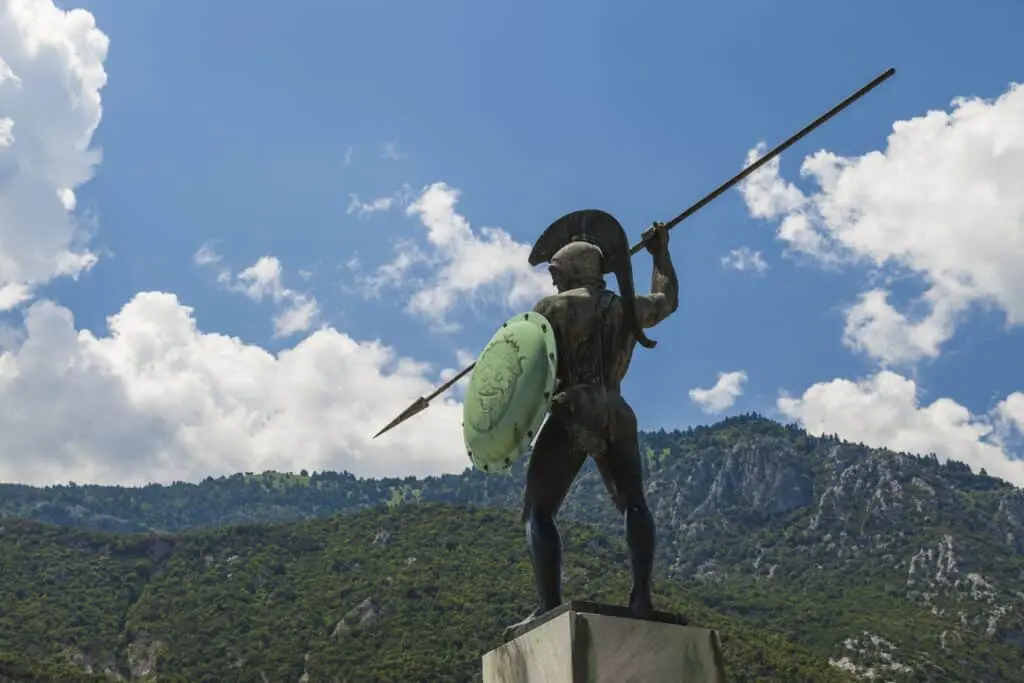
Leonidas I was king of Sparta from 489 BC to 480 BC. He was the 17th of the Agiad line that claimed their mythological descent from Heracles the demigod and Cadmus. Leoniadas I succeeded his half-brother king Cleomenes to the throne.
The story of his birth was very interesting. His mother was barren for years and could not bear his father’s children. The ephors tried to convince his father to take another wife and leave her. When his father refused, they allowed him to take a second wife, who bore him Cleomenes. However, one year after, his mother gave birth to his brother Dorieus. Leonidas I was the second son of his father’s first wife.
Leonidas was known for his remarkable role in the second Greco-Persian war. He led an allied Greek force at the Battle of Thermopylae. Though he died in battle, he went down in history as the leader of 300 Spartans. The Greeks managed to expel the Persian invaders a year later.
Queen Cleopatra
Cleopatra’s reign in Egypt from 51 to 30 Bc marked the end of the Hellenistic age in Egypt that lasted since the reign of Alexander the Great. Cleopatra was one of the most famous Egyptian Queens and has been the subject of study and arts icon to date. Her efforts as a leader were remarkable. She was the only Ptolemaic ruler who sought to learn the Egyptian Language. Cleopatra succeeded her father Ptolemy xiii, sharing the throne with her brothers Ptolemy XIII and Ptolemy XIV.
During her reign, Cleopatra acknowledged the need for Roman support. While Caesar was seeking money as repayment for the debts incurred by her father, Cleopatra was determined to recover the glories of her dynasty. She managed to form an alliance with the Roman party. It is said that she visited Rome with her husband-brother Ptolemy XIV and her son little Caesar at least once during her reign.
During a later stage in her reign, Cleopatra married Mark Antony and had three children with him. Their relationship caused a scandal in Rome that led to a war on Cleopatra in 32 BC. Cleopatra led several Egyptian warships along Antony’s fleet, but they failed to win against the Octavian naval army.
Both Cleopatra and Antony were forced to flee to Egypt. It is said that they both committed suicide in Alexandria. However, the method of Cleopatra’s death is not confirmed to date.
Cleopatra is known in history for her beauty and affairs. However, she was one of the most intelligent Greek Queens of Egypt. She was well-educated and loved the company of scientists and philosophers. She was a great warrior who led armies herself. Furthermore, she had a great impact on the Ancient Egyptian civilization.
The ruling history and personal life story of Queen Cleopatra were intriguing subjects to many filmmakers and artists. She had been portrayed in different works of Art in many languages. Her name was present in many novels, poems, and allegorical references. The most famous film, for instance, is the 1963 film under the name of Cleopatra, directed by Joseph L. Mankiewicz. Make sure to put it on your watch list for your next movie night.
3- Ancient Greek Philosophy
The only true wisdom is in knowing you know nothing
Socrates
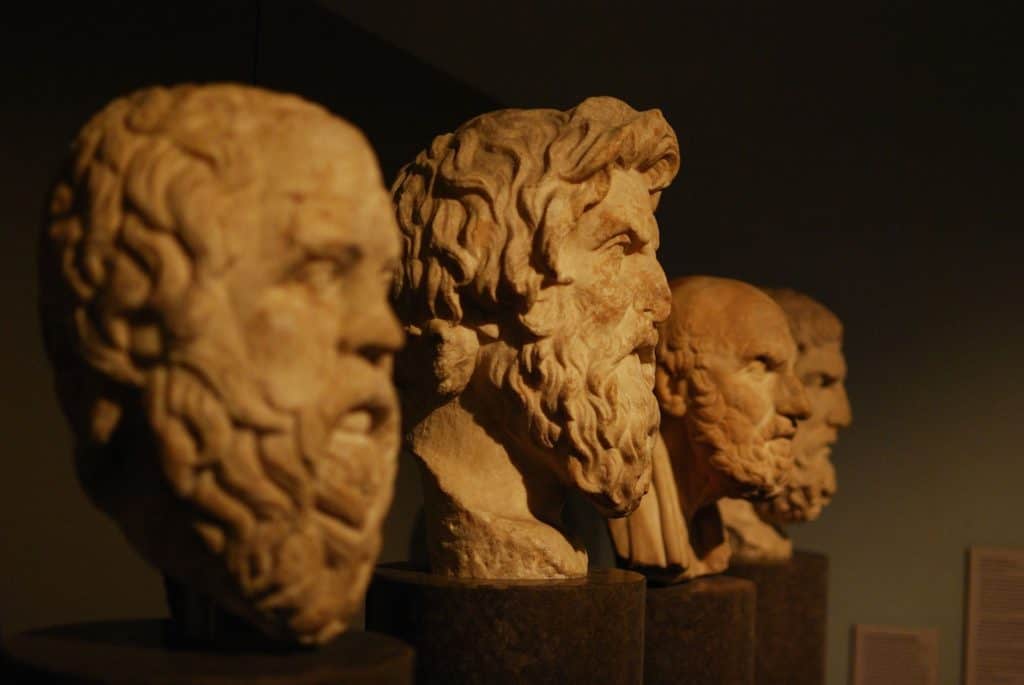
The Greeks were not only military leaders or politicians, they were also art creators and scientists. They sought out contemplating and analysing the universe. Their quest to understand the world, the human nature and formulate a political structure formed the foundation of many scientific discoveries, social ideologies, and political notions centuries after.
Ancient Greek philosophy was the scientific observations of the universe and human nature. Though they believed that the universe was created by the Gods, they were keen on exploring the Gods’ mighty creation. The science of Ancient Greek philosophy can be divided into Pre-Socratic philosophy, Socratic philosophy, and Post-Socratic philosophy.
Pre-Socratic Philosophy
The Pre-Socratic philosophy is the early Ancient Greek philosophy that formed before Socrates. Philosophers who belong to this era were mainly focusing on cosmology and the formation of the universe. They tried to seek a scientific explanation for the natural phenomena rather than the notion of the Greek Gods’ actions and will.
The presocratic philosophy began in the 6th century BC with three philosophers, Milesians: Thales, Anaximander, and Anaximenes. They all believed that the arche of the universe (meaning substance or origin) was water and air.
The latter three aristocratic philosophers are Xenophanes, Heraclitus, and Pythagoras. Xenophanes was famous for his critique of the anthropomorphism of gods. While Heraclitus, who was said to be difficult to understand, was known for his maxim on impermanence, and for considering fire to be the arche of the world. Pythagoras, on the other hand, advocated that the universe was made up of numbers.
There are many renowned philosophers that belong to this era. Though most of their work was lost, their impact was unprecedented. Many concepts of Western civilization that we study today can be dated back to the Pre-Socratic philosophers. Concepts, such as naturalism and rationalism, which paved the way for the scientific methodology of analysing our universe.
Socratic Philosophy
As the name Socratic philosophy suggests, it is the ideologies and philosophical notions initiated by the famous Greek philosopher; Socrates. Socrates was an Athenian Greek philosopher who is known as the founder of Western Philosophy. Though his ideas were not recorded in books by his own writings, he is known through the writings of his students Plato and Xenophon who recorded his accounts as dialogues in the form of questions and answers. These accounts initiated a literary genre called the Socratic dialogue.
Socrates was considered one of the moral philosophers who advocated the ethical tradition of thought. Despite his efforts in educating the youth and his society, he was accused of impiety in 399. He was sentenced to death after a trial that lasted only a day, after which he was imprisoned and refused any offers to help him escape. Socrates’ influence on philosophical thought continued to the modern era. He was the subject of study by many scholars and played a role in shaping the thought of the Italian Renaissance. The interest in his work can be widely seen in the works of Søren Kierkegaard and Friedrich Nietzsche.
Other famous ancient Greek philosophers who adopted the Socratic ideology were Plato and Aristotle. Plato was taught by Socrates, and he was the one documenting his work. He founded a new school of thought called the Platonic School and a high-ranking learning centre called the Academy. To date, we use the term “Platonic love” for example as an allegory to selfless and need-free relationships.
“I am the wisest man alive, for I know one thing, and that is that I know nothing.”
― Plato, The Republic
Plato was the first philosopher who used written dialogue and dialectic forms in philosophy. He raised questions that later became the foundation of major areas in theoretical philosophy and practical philosophy. His entire collection of work is believed to have survived intact for over 2,400 years. Though their popularity has changed, Plato’s works have always been read and studied. Some of his productions include the Dialogues of Plato and the Republic.
Finally, one of the most famous Socratic philosophers was Aristotle. Aristotle was a student of Plato and the founder of the Peripatetic school of philosophy and the Aristotelian tradition. His area of study and thought covered many scientific fields. His findings shaped the foundation of physics, biology, realism, criticism, individualism,… and many more. Aristotle was even the tutor of Alexander the Great, as previously mentioned in this article. One of his famous writings that survived to date was the Poetics.
Post-Socratic Philosophy
Philosophers belonging to the Post-Socratic philosophy school of thought established the foundation of four schools of philosophy, Cynicism, Skepticism, Epicureanism, and Stoicism. They focused their attention and analysis on the individual instead of politics. For instance, they focused on understanding and cultivating a certain way of life which was based on the individual’s virtues, wisdom, courage, and justice.
4- Ancient Greek Mythology
Greek mythology is the collective stories of the Gods and Goddesses whom the Greeks worshipped. It is the Greek’s religion, philosophy, and social codes, and the reason for their development artistically and mentally. They provided humanity with rich content that humans built on to date on many levels; medically, socially, and artistically. We can see Greek mythology elements around us in modern times, and it is still captivating and astonishing.
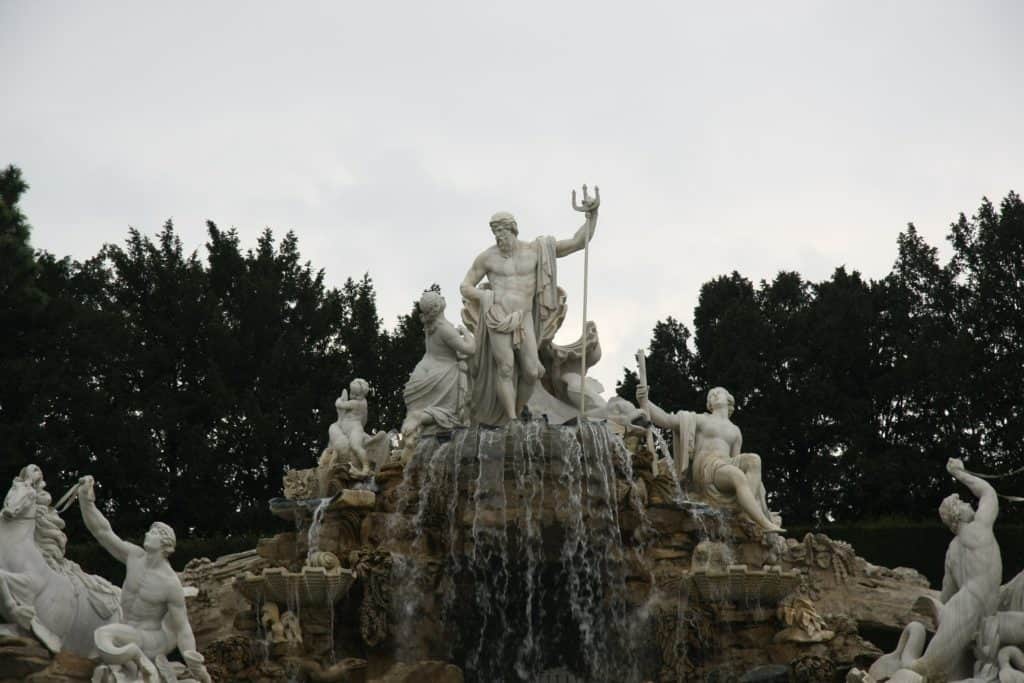
The main characters of the mythology revolve around the Olympian Greek Gods. Zeus, the father of the Gods, was born with his siblings Hestia, Demeter, Hera, Hades, and Poseidon, to his father Cronus and Mother Rhea. Cronus has been foretold that one of his children would dethrone him, so he swallowed all his children except for Zeus, whose mother hid. When Zeus reached manhood, he dethroned his father and saved his siblings. Thus naming himself the father of the Gods and taking Mount Olympus as his kingdom
Zeus divided the universe between himself and his two brothers, Poseidon and Hades. Zeus became the ruler of heaven and the sender of thunder and lightning. Poseidon was named the God of the sea. And finally, Hades was the ruler of the underworld. Thus, this would explain how the ancient Greek Man explained the world and natural phenomena around him at the time.
Greek mythology was originally oral narratives about the lives of the Gods. Their love life, their marriages, wars, conflicts, and their connection with the human world that Zeus created. Their stories created a network of heroes, antiheroes, Gods, Goddesses, demigods, and many other mythological creatures. And thus became a rich material for research, art, and culture to date.
Effect of Greek Mythology on Ancient Greek Art
The tales of the Greek Gods and Goddesses were originally oral folklore stories. Thus they were rich material for poets and playwrights to build on. Some of the famous Greek artists who influenced the Greek community at the time include Homer, Aeschylus, Sophocles, and Euripides. Their work has influenced the world’s art and culture to date. . In addition, the Greeks have left the world with magnificent sculpture art that resembled their Gods and Goddesses and is now found in museums all over the world.
Ancient Greek Writers
Homer
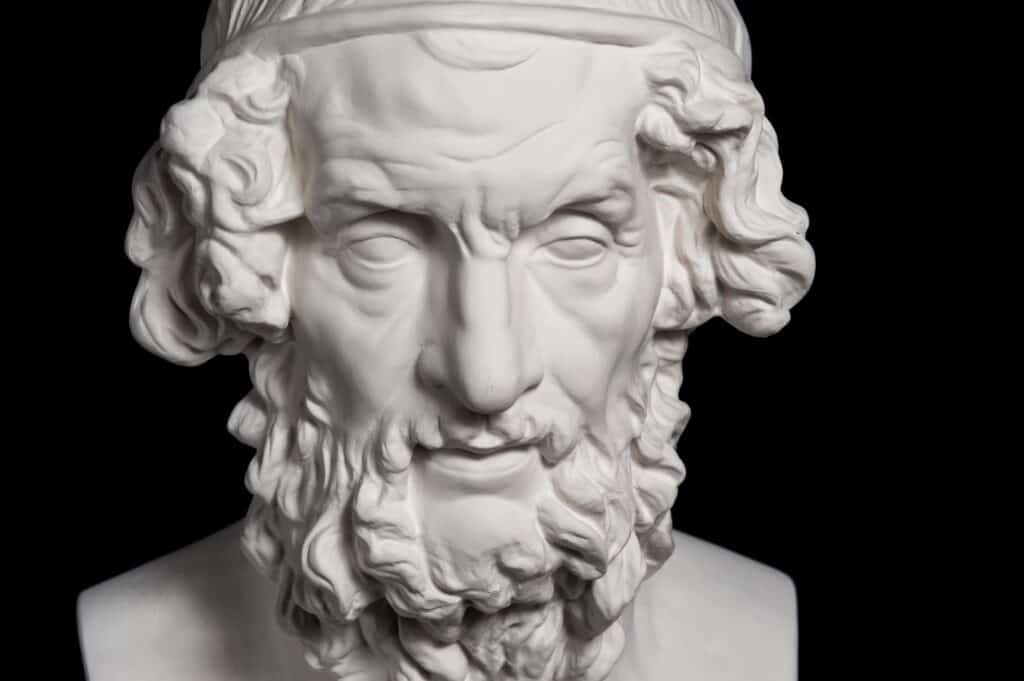
Homer is the most famous ancient Greek poet. He was an oral epic poetry writer who narrated tales and stories that revolve around Gods and Demigods. Homer was praised for being an influential artist who guided Greek art after him.
As Plato mentions in his book ION “But if, as I believe, you have no art, but speak all these beautiful words about Homer unconsciously under his inspiring influence, then I acquit you of dishonesty, and shall only say that you are inspired. Which do you prefer to be thought, dishonest or inspired?”. His most famous creations are the Iliad and the Odyssey, though there were doubts that they were created by the same author.
The Iliad, on the one hand, was a representation of the Trojan war and its main characters. His creation was so influential that it affected art, language, and culture to date. The Trojan Horse that was the secret weapon for the defeat of troy is currently used as an English expression meaning “secretly overthrow an enemy or opponent “. The Odyssey, on the other hand, narrates the journey of Odysseus back from the Trojan war. It is more harmonious in its narrative than the Iliad.
Homer’s creative writing included many encounters with the Gods and their interference in the human’s fate. They shaped a representation of how the Greek Man viewed the Olympian Gods at the time. This creation along with the fascinating narrative offered rich material for literature and cinematic art today. Some examples will be explored later in this article.
Aeschylus
Wisdom comes through suffering.
Trouble, with its memories of pain,
Drips in our hearts as we try to sleep,
So men against their will
Learn to practice moderation.
Favours come to us from gods.
― Aeschylus, Agamemnon
Aeschylus is a famous ancient Greek poet who was born around 525 BC. He was famous for his tragic plays. Some researchers even name him the father of Tragedy. His plays included elements and allegories of the Gods. His endeavours were manifested during dramatic competitions, particularly in the City Dionysia, where a festival was organized in spring to honour Dionysus, God of wine.
It is claimed that he won the first prize during these competitions thirteen times. Some of the famous Aeschylus tragedies were; The Persians, Seven Against Thebes, The Suppliants, The Oresteia; a trilogy of three tragedies: Agamemnon, The Libation Bearers, and The Eumenides. Not all his work survived fully undamaged but sources attribute from seventy to ninety plays to him.
Sophocles
Wise words; but O, when wisdom brings no profit,
To be wise is to suffer.”
— Sophocles
Sophocles is another influential ancient Greek tragedy playwright. He was born around 497 BC. Sophocles started writing around the time of Aeschylus, and he was an innovator. He used the third actor in his plays which reduced the importance of the chorus and left room for more conflict. He also participated in city competitions, and it is said that he won eighteen prizes in the city of Dionysia.
His tragedy Oedipus Rex was praised by Aristotle as an example of the highest achievement in tragedy. He praised his scenery painting, which was also innovative at the time. Sophocles’ ideas also influenced modern psychological science. Oedipus and Electra complexes which were discovered by Sigmund Freud were named after the tragedies he wrote.
Euripides
Knowledge is not wisdom: cleverness is not, not without awareness of our death, not without recalling just how brief our flare is. He who overreaches will, in his overreaching, lose what he possesses, betray what he has now. That which is beyond us, which is greater than the human, the unattainably great, is for the mad, or for those who listen to the mad, and then believe them.”
― Euripides, The Bacchae
Euripides is the third most famous tragedy playwright in Ancient Greece. Euripides was known to be a thinker and innovator. He revisited Homeric Gods’ representation questionably in his plays. He also introduced a different characterization than that of his predecessors; Aeschylus and Sophocles, where the characters’ fate depends on their actions and decisions rather than on the tragic fate installed on them by the Gods. Furthermore, he wrote over 90 plays among them; Medea, Children of Heracles, and Trojan Women.
Ancient Greek Sculptures
The ancient Greek sculptures were the Greek man’s signature and famous works of art. They were the way they gave tribute to their Gods and paid their respects. Viewing the human body as a sacred entity, their gods took a human form. You can find the unique and perfect sculptures as a signature of Greek history all over Greece and the over-sees colonies they claimed to date.
The Effect of Greek Mythology on architecture
Being the core of the Ancient Greek Man’s religious belief, many temples and ruins were dedicated to the Greek Gods. Their unique architectural endeavor left the world with historical sites to study and admire to date. To name some:
The Temple of Zeus
It is a temple built in ancient Athens that originally consisted of 104 pillars. It is located near the Acropolis of Athens. The temple was built in honor of the great Greek God, Zeus. The temple of Olympian Zeus used to be one of larget temples in Athens and it took many years to build.
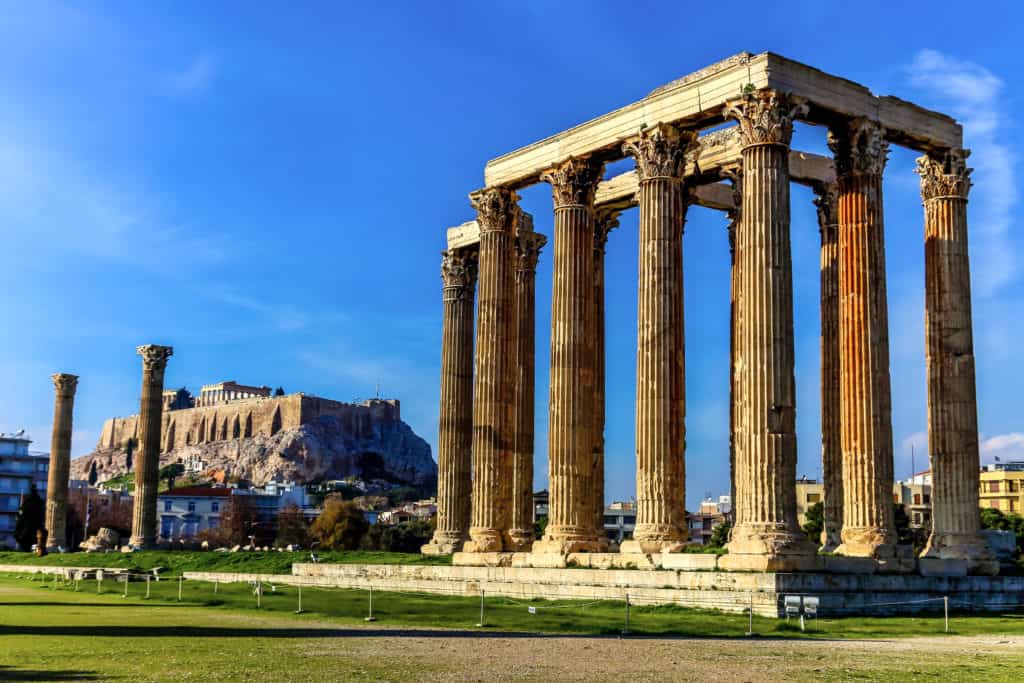
Today, only 15 columns of the temple survived. Many tourists from all around the world visit the temple of Zeus, as it is considered one of the most important open museums in the world. The entrance price is €12 (US$ 13.60) for adults and €6 (US$ 6.80) for Students. You can easily take the Metro in Athens to reach it.
Archeological sites of Isthmia
It is an important ancient Greek site that contains many historical landmarks and ruins. One of which is the temple of Isthmia which was built in the Ancient Greek Archaic period. The temple was dedicated to Poseidon, God of the sea. It served as a Panhellenic sanctuary that served all Greek men, regardless of their origin state. It also hosted one of the four Panhellenic Games which were dedicated to the Gods at the time. In Isthima’s archeological site, you can see the ruins of the stadium and theatre with its marble platform.
No one described it better than Pausanias in his book; Description of Greece, Book 2: Corinth
“The Isthmus has belonged to Poseidon. Worth seeing here are a theater and a white-marble race-course. Within the sanctuary of the god stand on the one side portrait statues of athletes who have won victories at the Isthmian games, on the other side pine trees growing in a row, the greater number of them rising up straight. On the temple, which is not very large, stand bronze Tritons. In the fore-temple are images, two of Poseidon, a third of Amphitrite, and a Sea, which also is of bronze.”
Effect of Greek Mythology on the Modern Cinema
Modern Cinema Adaptation of Greek Mythology Stories
As seen before, Greek mythology had a wide range of influence over many aspects of the Greek Man’s life and in our modern life as well. One of its greatest influences is its effect on modern literature and movies. An example is the influence of the myth of Perseus, son of Zeus.
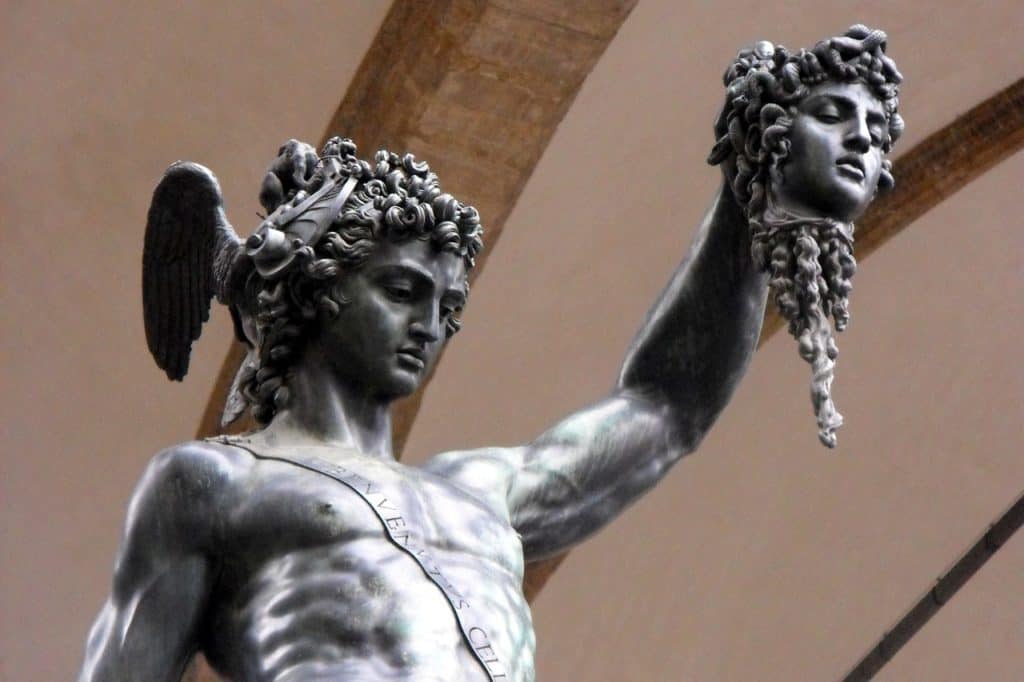
According to myth, Danaë the daughter of Acrisius of Argos bore Perseus after her encounter with Zeus. Acrisius, who was prophesied to be killed by his grandson, sent Perseus as an infant and his mother to the sea in a chest. He grew up with his mother on the island of Seriphus.
He was later tricked by the king of Seriphus to bring him the head of the Medusa in exchange for releasing his mother whom he abducted. Being aided by Hermes and Athena, he succeeded in bringing the Medusa’s head, killing the king and his supporters with its gaze, and saving his mother. It is worth mentioning that Medusa’s gaze turned any man into stone.
The story of Perseus was adapted into cinema several times. One adaptation is in the movie Clash of the Titans which was released in 2010. In the movie, people decided to defy worshiping the Gods. An action that led to Zeus’ wrath. As a result, he agreed to Hades’ Plan to release the Karken to perish in the kingdom of Argos.
Hades gave the people a number of days to either sacrifice the princess or face the undefeatable beast. Perseus witnessed the situation, and he was unaware of the truth of his origin till then. Hades revealed the fact that he was the son of Zeus to him. Zeus tricked his mother and he was the result of their encounter. His mother’s husband was angry and sent them to sea in a chest, where he was supposed to die with her. But being a demigod, he survived.
Perseus was angry at Zeus and he decided to save the kingdom. He went on a quest with a number of soldiers and he defeated the Medusa. By riding his winged horse, he went back to Argo’s kingdom and killed the Kraken using Medusa’s head. Doing that he fulfilled the prophecy of being the awaited hero who was believed to save Argos
Allegorical References of Ancient Greek Elements in Modern Cinema
The influence of Greek Mythology Is not just found in modern art as a retelling of the stories of its heroes. You can also find its influence in the allegorical reference of different artistic productions. One example is Alice in Wonderland movie which was released in 2010.
In the movie, grown-up Alice was lured back to wonderland to save the White Queen’s community from her sister the Red Queen. She is the prophesized hero that wonderland was waiting for. The one that was foretold to kill the Jabberwocky on the Frabjous Day.
One cannot help but connect the resemblance of the undefeatable beast with the features of the Medusa whom Perseus slays. In the movie, Alice managed to defeat the creature by slaying its head as well. The fight scene took place in a Greek-like temple with its famous columns design. Though the idea of the Jabberwocky was originally introduced by Lewis Carroll in his poem “Jabberwocky”, the influence of Greek Mythology and Perseus’ story cannot be overlooked.
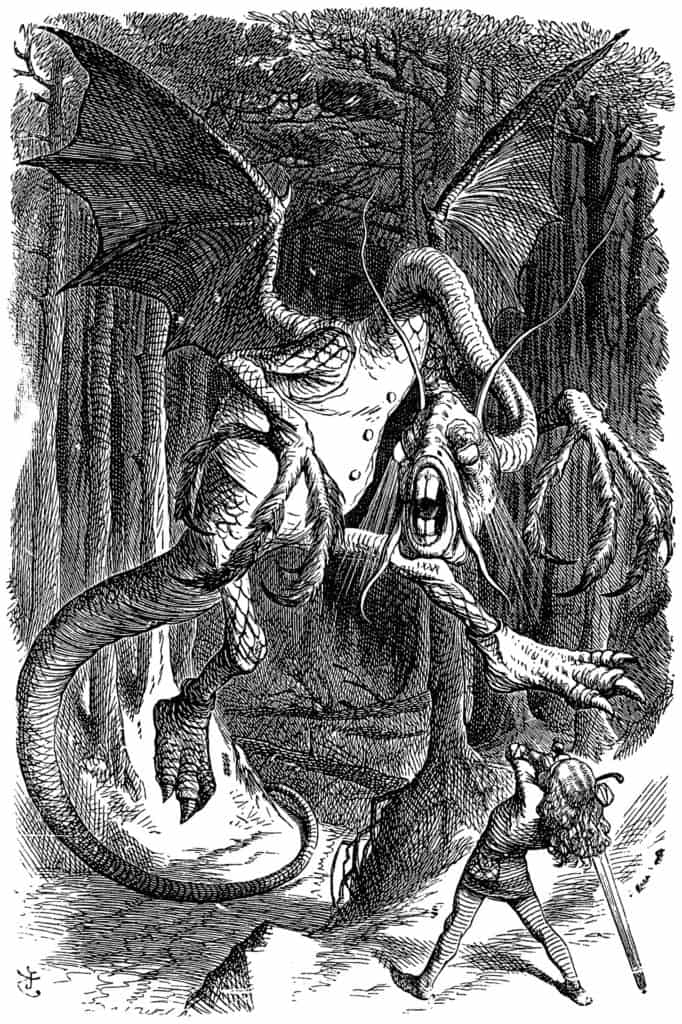
What are the Ancient Greek monuments to visit today?
As briefly explained in this article, the Ancient Greek civilization is one that has survived for centuries. They have left their footprints in Greece and around the world. You can revisit their historical impacts by reading history books or watching fictional creations. You can also visit some of their ruins in Greece and different museums around the world. For example, in Athens make sure to visit, the temple of Zeus, the Acropolis, and the National Archaeological Museum. You can also visit the Archaeological site of Mycenae. And take a tour of Ancient Olympia, the birthplace of the Olympic Games.
There are also different places to visit outside Greece that gives a glimpse of the Ancient Greek civilization. For example in Egypt, make sure to visit the Greco-Roman museum in Alexandria, Bibliotheca Alexandrina and its antiquities’ museum, and The Egyptian Museum in Cairo.






